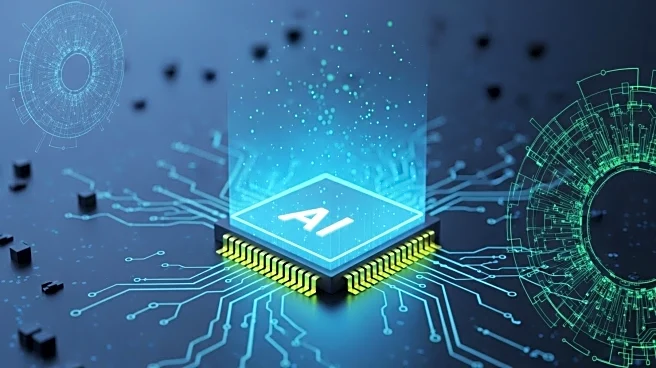What's Happening?
OpenAI has announced a partnership with Broadcom to develop its own AI processors, as reported by The Financial Times. This move is part of OpenAI's strategy to reduce its reliance on Nvidia's GPUs, which are currently used for AI model training and inference. Broadcom's CEO, Hock Tan, confirmed a $10 billion order from a new customer, widely believed to be OpenAI, which has led to a significant increase in Broadcom's market valuation. The custom chips are expected to be used internally by OpenAI, following a trend among tech giants like Google, Amazon, and Meta, who have developed in-house processors to manage AI workloads more efficiently.
Why It's Important?
The development of custom AI chips by OpenAI signifies a major shift in the AI industry, as companies seek to optimize performance and reduce costs associated with third-party hardware. This move could potentially disrupt Nvidia's dominance in the AI chip market, as more companies might follow suit in developing proprietary solutions. For OpenAI, this strategy could lead to greater control over its AI infrastructure and cost savings in the long term. The partnership with Broadcom also highlights the growing importance of semiconductor companies in the AI sector, as they become key players in the development of next-generation AI technologies.
What's Next?
OpenAI plans to begin mass production of its custom AI chips in 2026. This development is expected to enhance OpenAI's capacity to handle increasing AI workloads and could lead to further innovations in AI technology. The shift to in-house chip production may also prompt other AI companies to explore similar strategies, potentially leading to increased competition and innovation in the semiconductor industry. Additionally, Broadcom's involvement in this project could strengthen its position in the AI market, attracting more clients seeking custom chip solutions.








